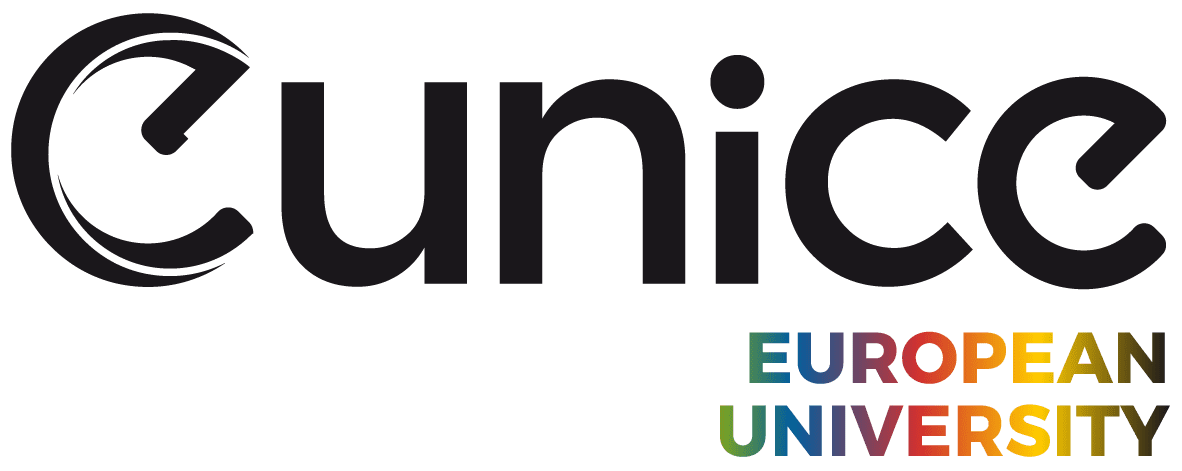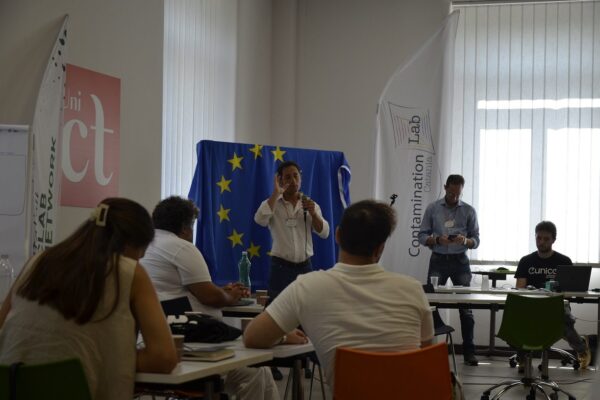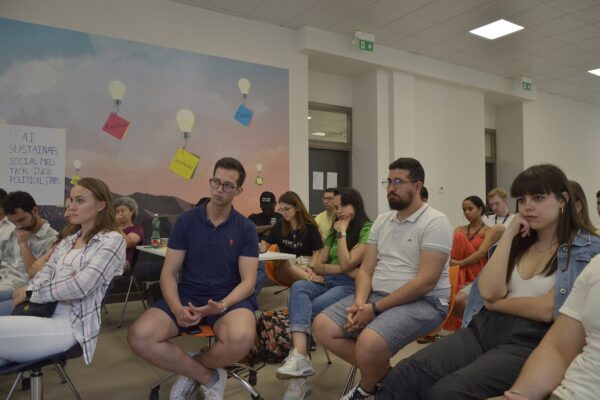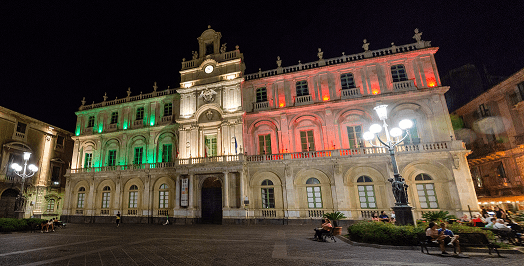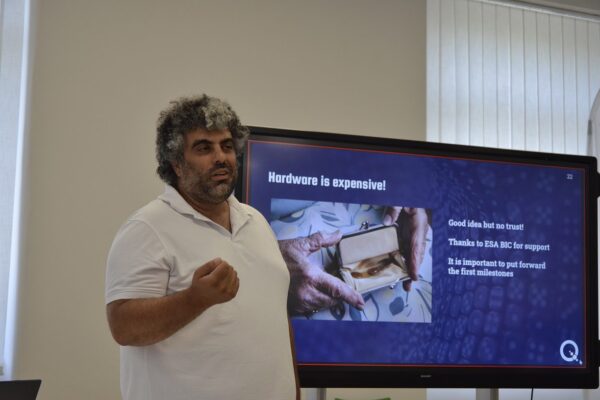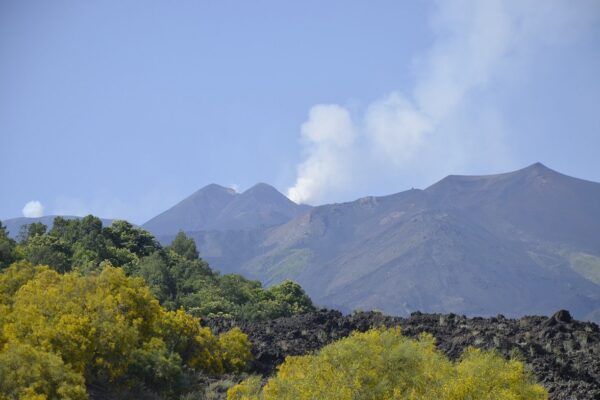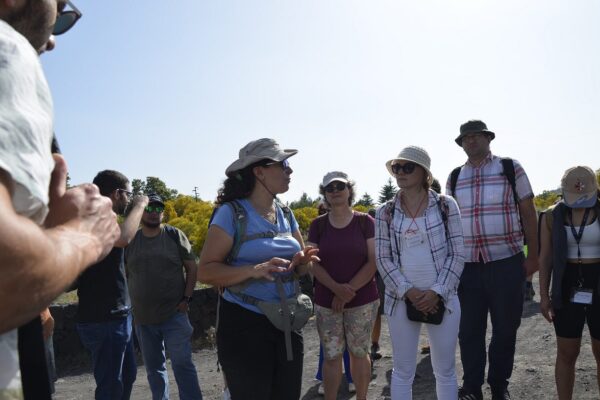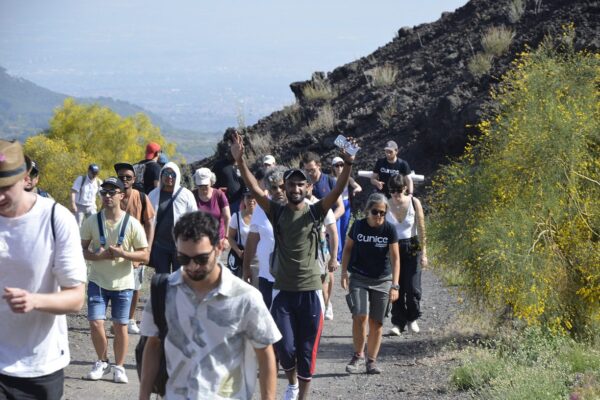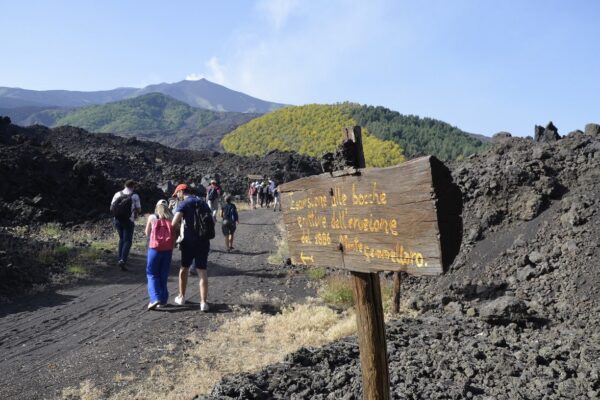Vincent Stragier, PhD student at University of Mons (UMONS, Belgium), was one of the twelve participants in the inaugural REUNICE doctoral summer school organized from 10th to 14th July 2023 by the University of Catania (UNICT, Italy). He is sharing hereunder the feedback of his experience.
In July, I attended the first REUNICE Doctoral Summer School on Sustainable Science at the Università di Catania, Italia. I applied to this doctoral summer school since one of the main topics, alongside sustainability, was explainable artificial intelligence (AI). This fitted with my learning path, as I’m currently working on an AI research project and have been constantly taught about environmental responsibility throughout my whole time at UMONS.
As an electrical engineer, it was truly enlightening to explore topics in and outside my field of expertise with quality speakers. I am pleased I got to discover subject matters which I wouldn’t have explored otherwise, like ecosystem services and ecological sustainability, or sustainable mobility.
I was fascinated by how we can estimate the environmental impact and energy consumption of each means of transportation using quantifiable metrics. In addition to learning, and more concretely, AI could help to greatly reduce the amount of taxis (from, 13 000 to 3, 000) in New York, as long as the clients would agree to share the rides.
Diving deeper into topics such as explainable AI and techniques we may use to build more explainable AI models was instructing. Moreover, this topic is getting more important as the European Commission is working on the Artificial Intelligence Act, which is pushing towards more explainable AI systems.
We also had the occasion to join the students of the Contamination Lab Summer School, with whom we participated in two workshops. One of them empowered us with tools for collaborative decision-making, a must-have nowadays.
Furthermore, this week abroad was the opportunity to explore Catania, which as the students taught us, had a crucial role during the Renaissance with artists like the composer Vincenzo Bellini. Thanks to the members of the EUNICE Student Board, we spent some time visiting the town center and tasting regional dishes. Besides, the Italian language is quite poetic. This week was also the opportunity to practice Italian with the inhabitants of the island.
On the last day of this adventure, we hiked to Mount Etna, where we were able to relax after this intensive week while still learning the geological specificities of Sicily with two interesting guides, professors at UNICT.
Overall, this summer school was a fertile ground for learning new skills, connecting with, and meeting students, researchers, and professors from all over the EUNICE network. We are eager to potentially work on common projects. Thanks to Gabriella Ventaloro for reviewing this article. E grazie a tutti!
ABOUT THE AUTHOR:

Vincent Stragier is a PhD student at the University of Mons (UMONS). He is working on an interactive assistant for visually impaired and blind individuals within the ISIA Lab, a department of the Faculty of Engineering. His project is funded through a PhD grant from the Œuvre fédérale Les Amis des Aveugles et Malvoyants ASBL – The Friends of the Blind and Visually Impaired Federal Charity -, Ghlin, Belgium and la Loterie Nationale. His research interests are mainly focused on NLP, large language models and computer vision related topics.
In 2021, he obtained his master’s degree in electrical Engineering, specialized in Signals, Systems and Bioengineering from the Faculty of Engineering in Mons. In 2020, he worked on improving an epilepsy detection pipeline as an intern at CETIC. During his studies, he participated in the electronic student association, electroLAB, and the Erasmus Student Network of Mons, ESN Mons. In his free time, he likes photography, fixing various things (hardware and software related), learning new skills.
